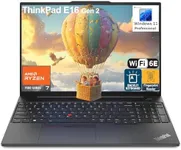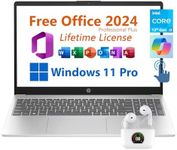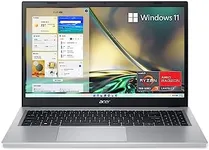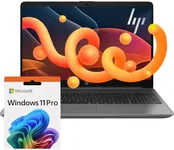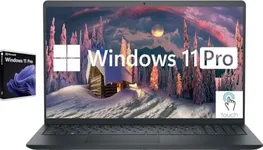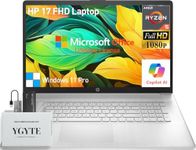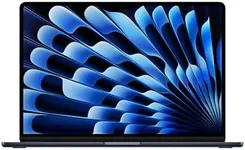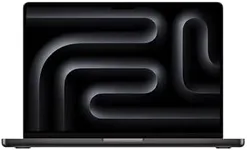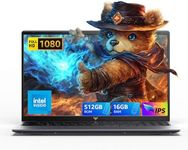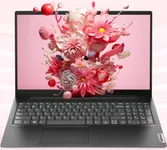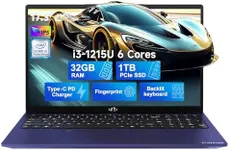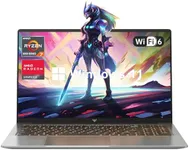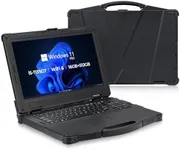Buying Guide for the Best Business Laptops
Choosing the right business laptop is crucial for ensuring productivity, efficiency, and reliability in your work. When selecting a business laptop, it's important to consider various specifications that will meet your professional needs. These specifications will determine the laptop's performance, portability, and overall user experience. Here are some key specs to consider and how to navigate them to find the best fit for you.Processor (CPU)The processor, or CPU, is the brain of your laptop and determines how fast and efficiently it can run applications. For business use, a powerful processor is essential for multitasking and running demanding software. Processors are typically divided into entry-level (e.g., Intel Core i3), mid-range (e.g., Intel Core i5), and high-end (e.g., Intel Core i7 or i9). If your work involves basic tasks like word processing and web browsing, an entry-level processor may suffice. For more intensive tasks like data analysis, graphic design, or running multiple applications simultaneously, a mid-range or high-end processor is recommended.
Memory (RAM)RAM (Random Access Memory) is crucial for multitasking and running multiple applications smoothly. More RAM allows your laptop to handle more tasks at once without slowing down. Business laptops typically come with 8GB, 16GB, or 32GB of RAM. For general office tasks, 8GB of RAM is usually sufficient. However, if you work with large datasets, virtual machines, or heavy software, 16GB or more is advisable to ensure smooth performance.
StorageStorage determines how much data you can store on your laptop, including documents, applications, and media files. There are two main types of storage: Hard Disk Drives (HDD) and Solid State Drives (SSD). SSDs are faster, more reliable, and consume less power than HDDs. Business laptops typically offer storage options ranging from 256GB to 1TB or more. If you need to store large files or a significant amount of data, opt for a higher storage capacity. For faster performance and quicker boot times, choose an SSD over an HDD.
DisplayThe display quality affects your viewing experience and productivity. Key factors include screen size, resolution, and panel type. Common screen sizes for business laptops range from 13 to 15 inches, balancing portability and usability. Resolution options include HD (1366x768), Full HD (1920x1080), and 4K (3840x2160). A higher resolution provides sharper and clearer images, which is beneficial for tasks like graphic design or video editing. Additionally, consider an IPS panel for better color accuracy and wider viewing angles, especially if you work with visual content.
Battery LifeBattery life is crucial for business professionals who need to work on the go without constantly searching for power outlets. Battery life can vary significantly between models, typically ranging from 6 to 12 hours or more. If you travel frequently or work in different locations, a laptop with longer battery life is essential to ensure you can work uninterrupted. Check the manufacturer's battery life estimates and read user reviews to get a realistic idea of how long the battery lasts under typical usage conditions.
Build Quality and DurabilityBusiness laptops often need to withstand frequent travel and daily use, so build quality and durability are important considerations. Look for laptops with sturdy materials like aluminum or magnesium alloy, which offer better protection against drops and bumps. Some business laptops also come with MIL-STD-810G certification, indicating they have passed military-grade durability tests. If you need a laptop that can handle rough handling and harsh environments, prioritize models with robust build quality and durability certifications.
Connectivity OptionsHaving a variety of connectivity options is essential for business use, as it allows you to connect to different devices and networks. Key connectivity features to look for include USB ports (preferably USB-C), HDMI or DisplayPort for external monitors, Ethernet ports for wired internet connections, and SD card readers. Additionally, ensure the laptop supports the latest Wi-Fi standards (Wi-Fi 6) and Bluetooth for faster and more reliable wireless connections. Consider your specific connectivity needs based on the peripherals and networks you frequently use.
Keyboard and TouchpadA comfortable and responsive keyboard and touchpad are essential for efficient typing and navigation. Look for a keyboard with good key travel, tactile feedback, and backlighting for working in low-light conditions. The touchpad should be smooth, accurate, and support multi-touch gestures. If you type a lot or work long hours, prioritize laptops with high-quality keyboards and touchpads to enhance your productivity and reduce strain.
Security FeaturesSecurity is a top priority for business laptops to protect sensitive data and ensure privacy. Look for features like fingerprint readers, facial recognition, and TPM (Trusted Platform Module) for hardware-based encryption. Some business laptops also offer privacy screens to prevent others from viewing your screen. If you handle confidential information or need to comply with security regulations, choose a laptop with robust security features to safeguard your data.
